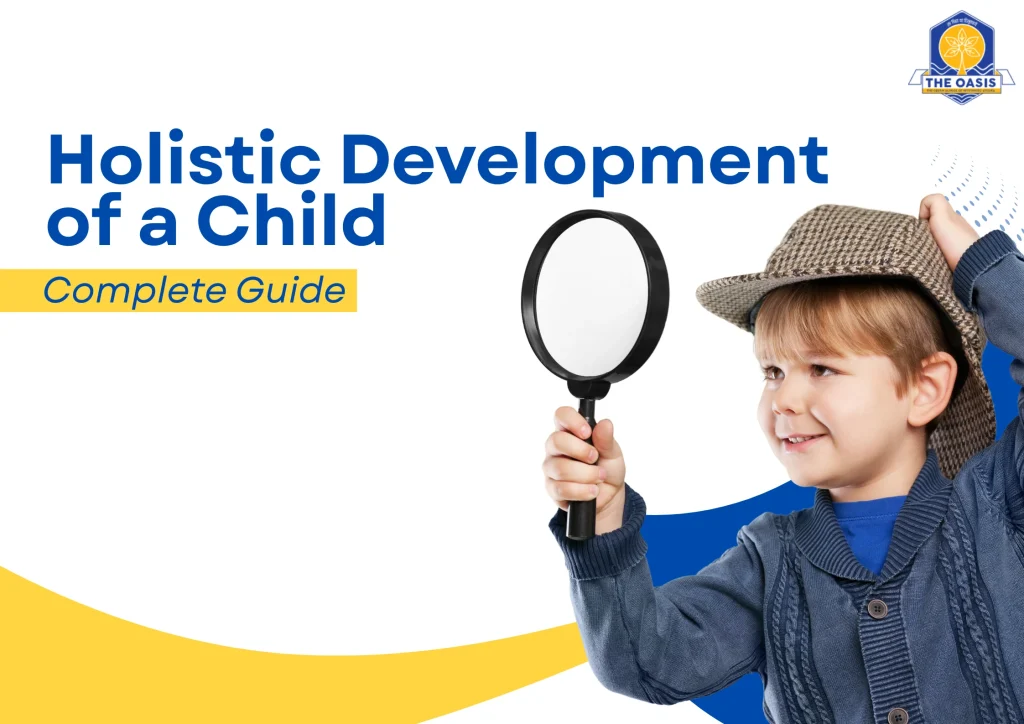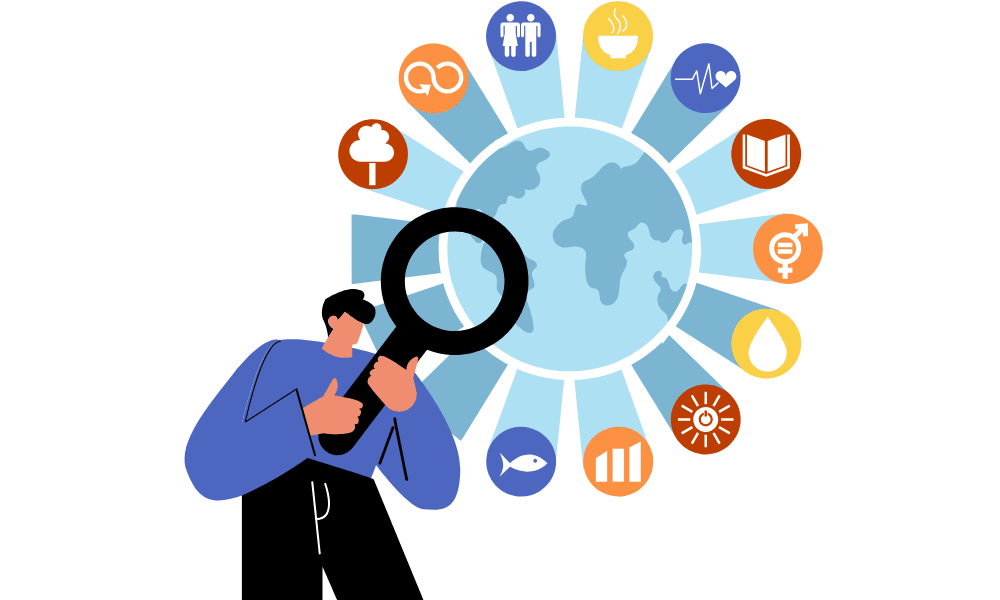
Today’s education is about developing young brains into confident, well-rounded people, not just about textbooks and tests. The value of a holistic development of a child that includes not only academic growth but also emotional, social, physical, and creative development, it is being recognized by both parents and educators. The Children who receive nurturing in all of these areas develop life skills that equip them to face challenges outside of the classroom.
What is Holistic Development of a Child?

The holistic development of a child involves putting more emphasis on overall development than only academic achievement. It guarantees the children’s physical, social, emotional, and intellectual growth. In contrast to traditional education, which places a strong emphasis on grades, holistic education helps students develop resilience, empathy, and adaptability in order to better prepare them for life.
Why Holistic Development of a Child Matters?

In today’s fast-changing world, success is defined not only by knowledge but also by character, creativity, and confidence. By focusing on holistic growth, schools and parents can ensure children:
- Build strong problem-solving and decision-making abilities.
- Gain emotional intelligence and resilience.
- Develop communication and teamwork skills.
- Stay physically active and healthy.
- Cultivate empathy, leadership, and responsibility.
This balanced growth equips children to thrive academically, socially, and professionally.
Key Areas of Holistic Development:

1. Intellectual Development
Intellectual growth nurtures curiosity, logical reasoning, and problem-solving skills. Encouraging children to ask questions, explore new ideas, and think critically ensures they stay motivated and confident learners.
2. Emotional Growth
Children must learn to manage their emotions, build resilience, and practice empathy. By promoting self-awareness and confidence, emotional development helps children handle challenges with a positive mindset.
3. Physical Development
Sports, yoga, and physical activities are essential in the holistic development of a child. A strong body fosters a strong mind, and active children often perform better academically while maintaining discipline and focus.
4. Social Development
Teamwork, leadership, and communication are at the heart of social growth. Group activities, cultural events, and community service instill a sense of belonging and responsibility in children.
5. Creative Development
Art, music, theater, and storytelling encourage children to express themselves freely. Creativity not only sparks innovation but also strengthens imagination and confidence.
Good Communication is the Foundation:

Good communication is the foundation of learning, teamwork, and success in student life. Whether it’s sharing ideas in class, participating in group projects, or building friendships, communication helps students grow academically and personally. To become effective communicators, students must understand the key elements of communication.
Role of Schools and Parents in Holistic Development:
Both schools and parents play crucial roles in nurturing holistic growth:
- Schools: Provide structured learning, extracurriculars, and exposure to sports and arts.
- Parents: Encourage hobbies, healthy routines, and values at home.
Together, they ensure children balance academics with life skills.
How to Nurture Holistic Development at Home?
Parents can encourage holistic growth with simple, everyday practices:
- Promote reading and storytelling.
- Encourage hobbies like painting, music, or sports.
- Teach life skills such as discipline, empathy, and time management.
- Limit screen time and create space for open discussions.
Challenges in Achieving Holistic Development:
Despite its importance, many families struggle due to:
- Excessive focus on academics and exam pressure.
- Lack of awareness about non-academic growth.
- Overuse of technology and digital distractions.
Overcoming these requires balance, awareness, and consistent efforts from both parents and schools.
Future Benefits of Holistic Development of a Child:
Investing in holistic development of a child ensures:
- Stronger adaptability in career and life.
- Leadership and teamwork skills.
- Emotional intelligence and resilience.
Lifelong confidence and creativity.
ALSO CHECK OUT: Which are the best boys boarding schools in Dehradun?
Frequently Asked Questions (FAQs)
Ques 1. What is meant by holistic development of a child?
Ans. Holistic development of a child means nurturing intellectual, emotional, social, physical, and creative growth instead of focusing only on academics.
Ques 2. Why is holistic development of a child important?
Ans. It prepares children for real-world challenges by balancing academic knowledge with life skills, emotional strength, and creativity.
Ques 3. How do schools contribute to holistic development of a child?
Ans. Schools provide structured academics, extracurricular activities, and guidance that build overall personality and confidence.
Ques 4. Is holistic development of a child linked to better academics?
Ans. Yes, when children are emotionally balanced and socially confident, they perform better academically too.
Ques 5. What are the challenges in achieving holistic development of a child?
Ans. Common challenges include overemphasis on academics, lack of awareness, and excessive screen time.



